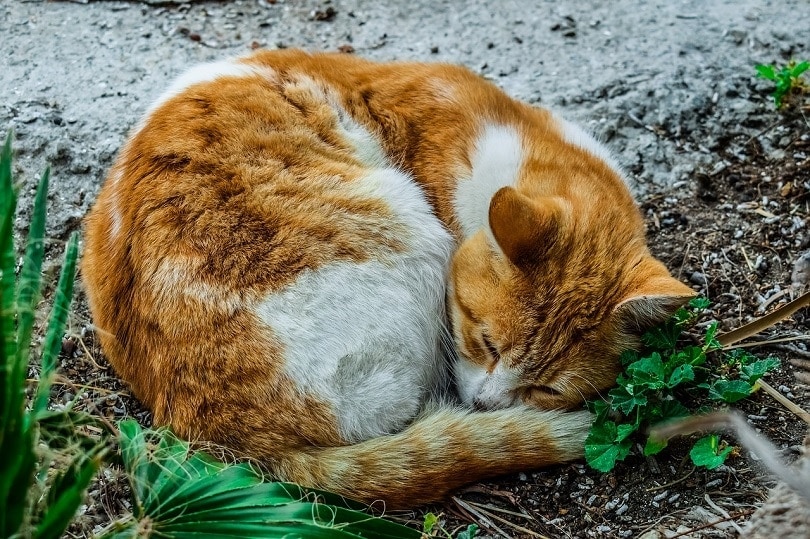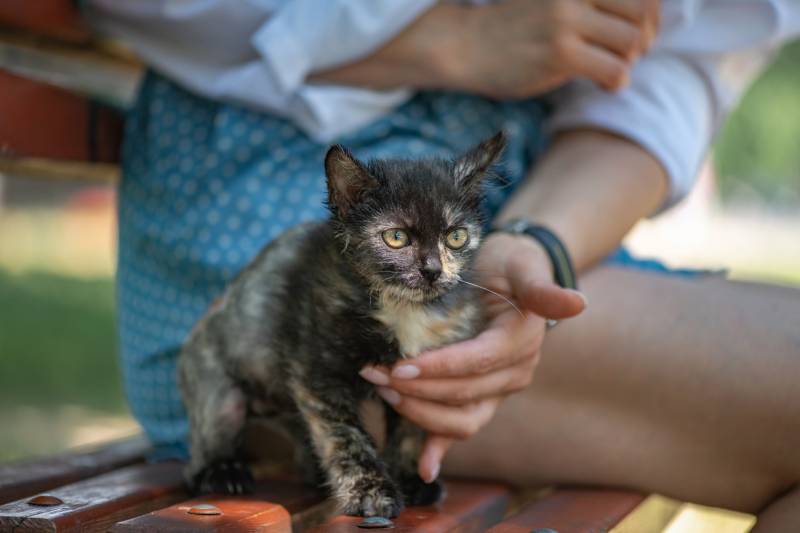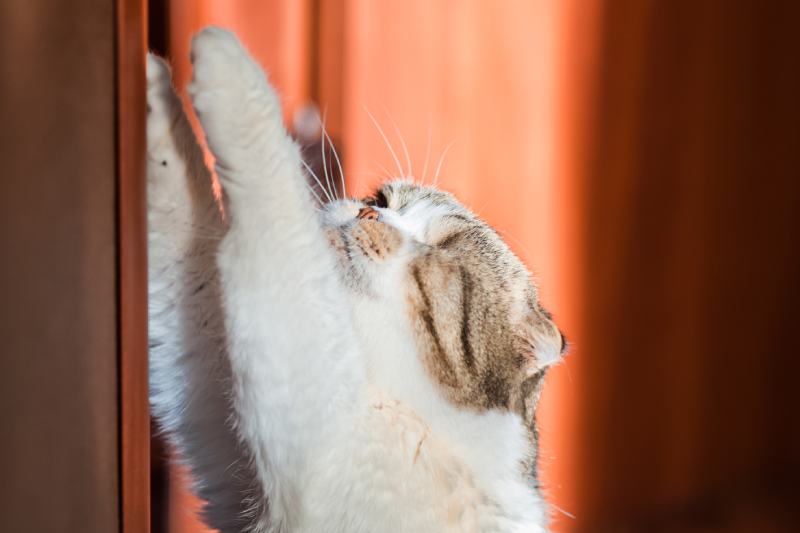9 Common Birman Cat Health Problems: Vet Approved Facts
Updated on
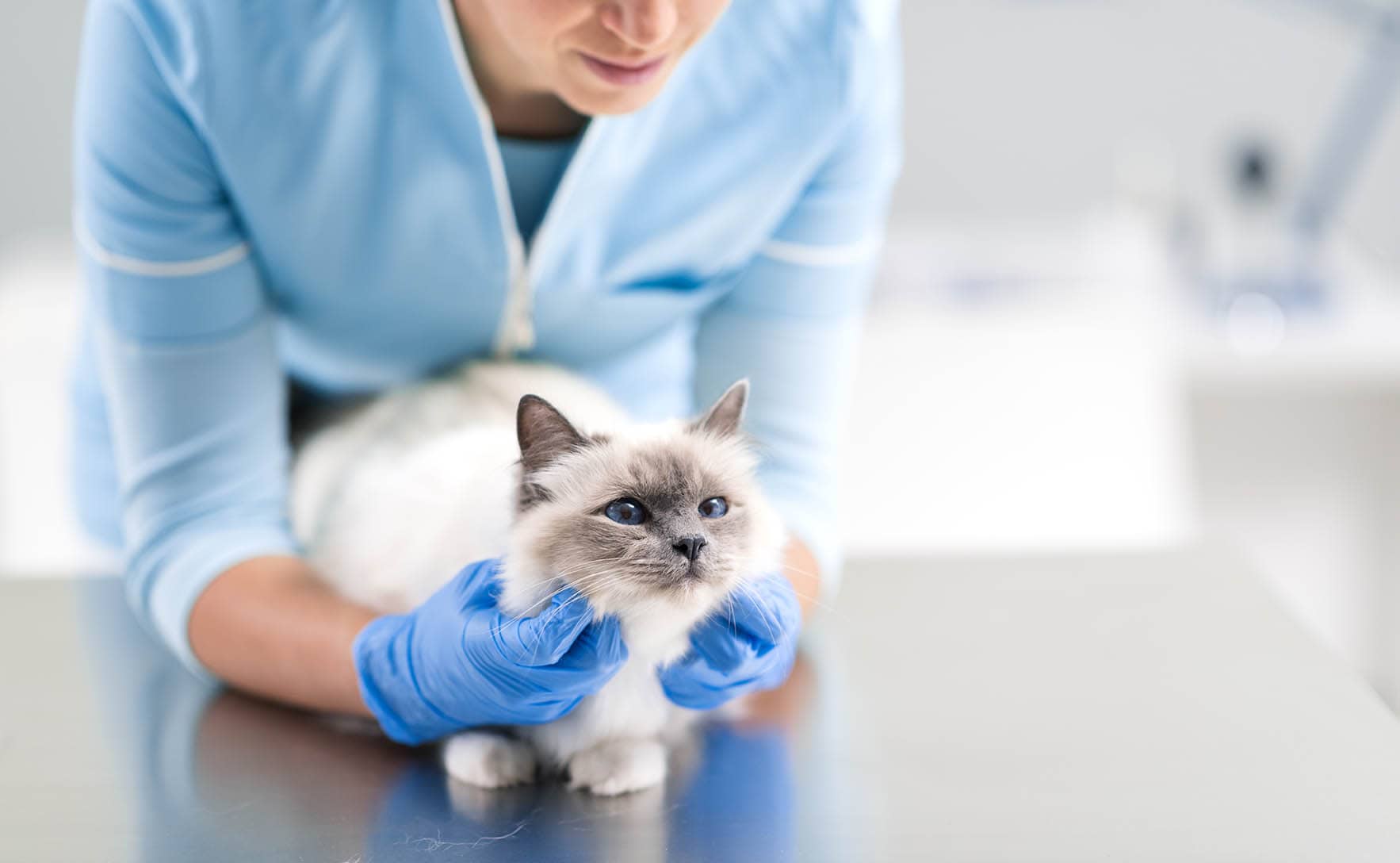
Birman cats are unique both inside and out. These cats can sense your moods and enjoy human companionship. To know a Birman is to love one, and there’s a good chance that you’ve chosen a Birman for traits that fit your lifestyle. But as a pedigreed cat breed, the Birman is genetically predisposed to developing certain health conditions. To keep your cat in optimum health, it’s important to know what these conditions are and how to spot their signs and symptoms.
Birman Cat Health Problems
1. Arterial Thromboembolism
Birman cats are prone to suffering from heart disease caused by feline aortic thromboembolism, or FATE. The condition involves the development of a blood clot in the arteries. The clot typically becomes lodged near the aorta and restricts blood flow to the hind legs. This can result in the back legs becoming paralyzed and painful.
In many cases, FATE is fatal. Cats that do survive can regain some function of their back legs. Most cats that suffer from FATE will require medications to prevent blood clots from reoccurring.
If you find that your Birman is having difficulty bearing weight on their back legs or is whining in pain, it is a veterinary emergency. The sooner that your cat is treated, the better their prognosis is.
2. Hemophilia
Hemophilia is a blanket term used to describe deficiencies in blood clotting. It is a genetically inherited disorder that is passed on through the X chromosome. This inheritance pattern makes it most common in male cats, but females can suffer from symptoms too, though they are often less severe.
Birmans can suffer from hemophilia B or Factor IX deficiency. If not carefully managed, it can be life-threatening. Any injury can cause bleeding, but blood doesn’t clot, meaning the bleeding will go on indefinitely without intervention.
As Birman cats are prone to this condition, it is recommended that you have testing done to screen for the condition prior to any procedures or surgeries. Even routine surgeries like spays or neuters can be dangerous for cats with hemophilia.
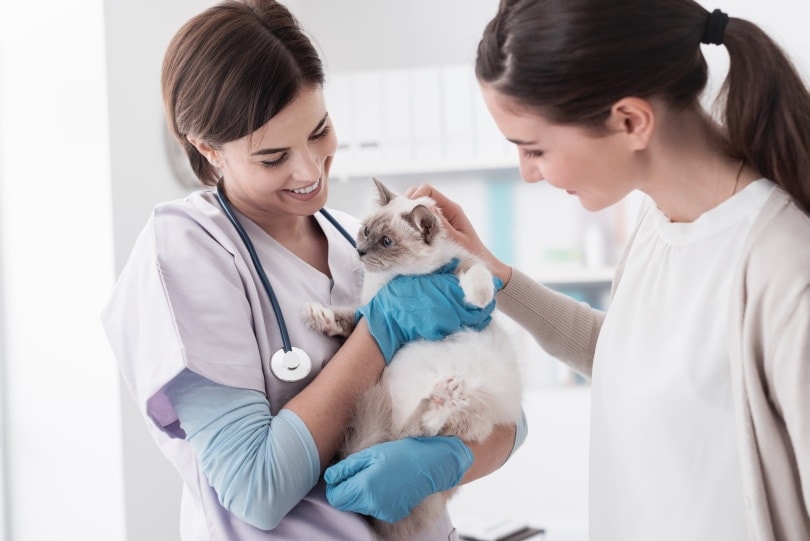
3. Blood Type
While most domestic cats have Type A blood, Birmans have Type B or Type AB. Type AB is rare, and each blood type has antibodies against the others.
While your cat’s blood type doesn’t affect their health, it is important if your cat ever needs a blood transfusion. Cats don’t have a “universal donor” as humans do, so they must receive the exact same blood type during a transfusion. For cats with a rare blood type, this can make finding a donor difficult in an emergency.
4. Neonatal Isoerythrolysis
Neonatal isoerythrolysis is a condition caused by differences in blood type between a mother cat and her kittens. If a newborn kitten with blood type A ingests colostrum from their mother that has blood type B (or vice versa), the kitten is ingesting antibodies that will attack its red blood cells. This condition is fatal, and the kitten will die within a few days.
Since Birmans have a high prevalence of type B blood, this immune reaction is more common in this breed. It is completely preventable by breeding cats that have undergone blood typing and genetic testing. It is a good reason to only purchase kittens from reputable breeders who can provide this information.
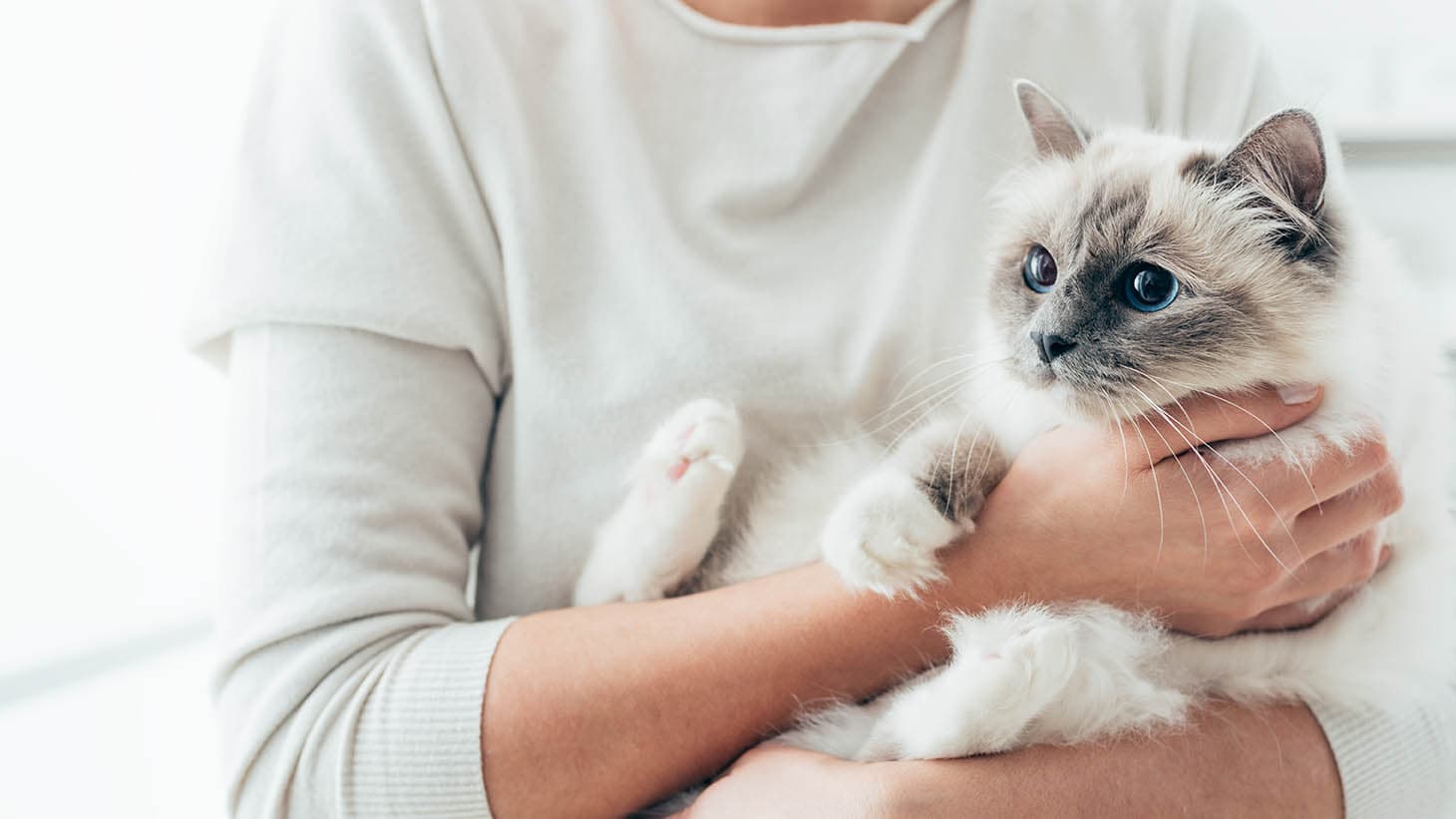
5. Neutrophil Granulation
Neutrophils are white blood cells that play a role in immune function. Birman cats can inherit a genetic trait that causes an abnormal appearance of these cells. The blood cells of affected cats will look like immature cells when examined under a microscope, but their function is unaffected.
There is no treatment required for this condition, and the health prognosis is the same as a healthy, unaffected cat. While neutrophil granulation indicates a health issue for other breeds, it is a perfectly normal condition for a Birman.
6. Portosystemic Shunt
A portosystemic shunt is a disorder that causes decreased blood supply to the liver. Instead of the portal vein connecting to the liver, it bypasses the liver entirely and flows directly into the heart, so the liver is unable to filter toxins from the body. The circulating blood is “shunted” into the heart without being detoxified.
The cause of portosystemic shunts isn’t entirely known, but it’s thought to be a result of embryonic blood vessels failing to close at birth.
The health consequences of this condition are related to toxins building up in the cat’s body. These can be serious or life threatening and include neurological disorders, stunted growth, urinary tract problems, and gastrointestinal dysfunction.
In some cases, clinical symptoms can be alleviated by feeding a low-protein diet to reduce the build-up of ammonia. Alternatively, surgical management is needed to close off the shunted blood vessel and redirect blood flow to the liver. This is the preferable option for most cats.
7. FIP Susceptibility
Feline infectious peritonitis, or FIP, is a fatal disease. It is caused by a mutated type of coronavirus that is carried in a dormant form in many cats. Under certain conditions, the virus mutates and attacks the immune system.
Birmans are at a higher risk of developing FIP than other cat breeds. It damages the blood vessels and causes fluid build-up in the chest and abdomen. While blood testing is available for the virus that causes FIP, it doesn’t differentiate between a dormant virus and a mutated one.
Genetic testing for FIP is unreliable, but the highest risk is for purebred kittens coming from a cat population with the virus. Once a history of FIP is present in a breeding population, it is difficult to get rid of. If you are purchasing from a breeder, be sure to obtain health information about your kitten’s parents and other cats in the facility.
There is no treatment for FIP and the disease is fatal.

8. Eye Problems
Birmans can inherit several different eye conditions. Some can cause blindness when left untreated, and most are painful. It is extremely important to have a thorough eye exam conducted by a veterinarian and to treat any eye issues as soon as possible.
- Cataracts— The lens of the eye becomes cloudy and impairs vision.
- Eyelid agenesis— This is a birth defect where the upper eyelid doesn’t properly form.
- Corneal sequestration— This is a hard patch of dead tissue that develops on the cornea.
9. Hypotrichosis
Hypotrichosis is a genetic defect found in Birman cats. The condition causes balding or thinning of the hair and usually develops in patterns or patches on the head and torso.
Over time, areas of hair loss will develop thickened skin with altered pigmentation. This condition is not painful but requires special care to protect bare patches of skin. There is no known treatment, and affected cats should not be bred in order to prevent passing on the disease.
Conclusion
Birman cats make wonderful companions, but they are prone to developing several diseases. Choosing a reputable breeder who provides genetic testing and health information for your kitten’s parents is crucial. Regular medical checkups will also alert you to any developing problems, so you can treat them as soon as possible.
Featured Image Credit: Stock Asso, Shutterstock


